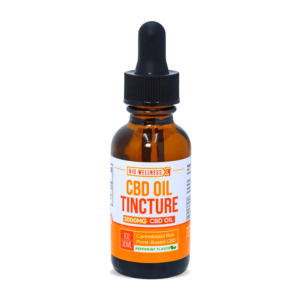It’s never a smart choice to drive while under the influence, regardless of the substance. Operating heavy machinery while intoxicated with controlled substances is inherently risky, even if some individuals claim that smoking cannabis somehow improves their driving skills. Driving while under the influence of cannabis is illegal throughout the United States.
With the legalization of some cannabis products, numerous inquiries have arisen, including how to identify impaired drivers. While traditional breathalyzers can swiftly detect alcohol, the question remains: Can they detect weed? Is there a dependable and effective method to ascertain if someone is driving after smoking cannabis?
In this article, we will look into the present status of THC detection technology, the legal complications and hurdles, and the forthcoming innovations in cannabis detection.
Can Breathalyzers Detect Weed?
It is important to understand the function and operation of a breathalyzer before diving into details.
A Breathalyzer is used in a comprehensive breath test and is a device employed to gauge the concentration of alcohol present in a person’s first breath sample. This method furnishes a quick assessment of impairment for law enforcement officers.
The apparatus examines a sample of the individual’s breath generated by blowing into the machine. Upon provision of a sample, the breathalyzer quantifies the amount of alcohol detected in breath samples. It identifies any alcohol molecules which generate an electrical current if present. Subsequently, this current is transformed into a measurement referred to as blood alcohol concentration (BAC).
However, the question remains: do breathalyzers detect weed?
Although in recent times, there are quite a few devices claiming that they can detect THC through breathalyzers none of those devices are deemed accurate while being performed to determine recent cannabis.
This research is really important for keeping everyone safe, especially when it comes to testing drivers for cannabis use. But before we can say for sure if a breathalyzer for weed will work well for police officers, there’s a lot of work to be done.
This year, several research initiatives are underway to perfect a cannabis breathalyzer, intending to enhance workplace safety and address concerns related to recreational cannabis use among employees. While specific details about these devices are not provided, it’s worth noting that there may already be products available on the market.
These breathalyzers aim to detect recent cannabis use, typically within a span of two to three hours before the test, which is crucial for maintaining safety in workplaces where split-second decisions and precise coordination are essential. Unlike traditional tests such as oral fluid, urine, or hair tests, which can detect THC for extended periods after use, these cannabis breathalyzers can focus on isolating and detecting recent cannabis use and providing objective results to employers.
Are There Any Tests That Can Detect THC Impairment?
As more countries legalize cannabis for recreational use, it becomes crucial to have effective roadside screening programs to catch and prevent driving under the influence of THC (DUIC).
We checked various sources for recent studies, looking at how well these tests compared to lab tests that check for cannabinoids in blood or saliva. We focused on how good these tests were at detecting alcohol, and finding delta-9-tetrahydrocannabinol (THC), the main active ingredient in cannabis.
We found 101 studies that met our criteria. When comparing different tests, we discovered that oral fluid tests were better at pinpointing THC but not as good at catching all instances of cannabis use compared to urine tests. However, oral fluid tests were more sensitive and about as accurate as observational tests when checked against lab tests.
Some oral fluid tests performed better than others. Tests like the Draeger DrugTest 5000 and the Alere DDS 2 Mobile Test System seemed to do well, but definite conclusions couldn’t be made because of uncertain results. Overall, oral fluid tests seem to hold the most promise for screening drivers for THC levels above the legal limit. However, more research is needed to refine and improve these tests.
Federal Laws About Driving Under the Influence
While hemp-derived cannabis may be legal, if you drive under the influence on any land that belongs to the government, it’s considered a serious crime under federal rules. This includes places like national parks, military bases, and even post offices.
If you’re caught driving under the influence the officials might ask for your blood sample for a blood test. If you refuse to take the test, you might lose your driving privileges on federal land for up to a year.
Difference Between Federal and State Law
The big difference between getting a DUI charge at the state level and the federal level is where you’ll go to court and who will prosecute you.
If you get arrested for DUI on federal property, like a national park, you’ll go to federal court, and a U.S. District Attorney will handle your case. Instead of facing a jury, a judge will usually decide your case.
Even though it’s serious, getting a DUI on federal land is seen as a minor offense in the federal criminal justice system. But the penalties can be similar to those in the state where the offense happened, following federal laws.
For example, if you get a DUI in a national park, you might have to pay up to $5000 in fines, even if it’s your first offense. Plus, if you’re convicted, you’ll serve your time in a federal prison, not a local one.
What are the Rules for DUI?
When someone gets a DUI on federal land, it’s considered breaking federal law, so the case usually goes to federal court. Military members who get a DUI on a military base also go to federal court.
For military people, the consequences might include both regular punishments, like fines or jail time, and military punishment, like losing rank or getting kicked out.
The process in federal court is a lot like in state court. After being charged, the person goes to court and explains their side of the story.
Non-Psychoactive Alternatives: Zero-THC Hemp Products
If you’re looking for alternative hemp products that will likely not be detected on a drug test or if you’re looking for options because you have shown adverse effects to the use of THC, then don’t fret, as the market is overflowing with products that are derived from cannabis sativa plant or hemp but have no traces of THC in them.
Some of these zero-THC products are:
- CBD oil: Extracted from hemp plants, CBD oil contains cannabidiol, a non-psychoactive compound known for its potential therapeutic benefits, such as relaxation and stress relief.
- Hemp seed oil: Derived from hemp seeds, this oil is rich in omega-3 and omega-6 fatty acids, making it a nutritious addition to skincare products and food.
- Hemp-derived cannabinoids other than THC: Besides CBD, hemp contains several other cannabinoids like cannabigerol (CBG) and cannabinol (CBN), each with its potential effects and applications.
Final Thoughts: Can a Breathalyzer Detect Weed
Driving under the influence of cannabis regularly is dangerous and against the law. While traditional breathalyzers effectively detect alcohol, determining cannabis impairment remains a challenge. Despite claims of improved driving skills under the influence of cannabis, it’s illegal to drive after using THC in the United States.
Researchers are exploring various methods to detect recent cannabis use, including breathalyzers. However, current devices are not accurate enough for widespread use. Efforts are underway to develop reliable cannabis detection technology, especially for workplace safety.
Federal laws impose serious consequences for driving under the influence on federal land, with penalties including fines, jail time, and loss of driving privileges. Military personnel face additional disciplinary measures.
Overall, while advancements in detection technology are promising, more research is needed to ensure accurate and reliable methods for detecting THC impairment while driving.

Legal Disclaimer:
By reading this information presented, you agree to release the author of any liability that comes from using this data. This post contains no legal advice. Claims about cannabinoids have not yet been approved by the FDA. Cannabis laws and regulations are subject to change. Read the full legal disclaimer here.
Other Delta-8 Topics You Might Want To Read:
- Delta-8 vs. Delta-10 For Pain: Which Works The Best?
- Organic 50mg Delta-8 Gummies: Benefits and Effects
- 100mg Delta-8 THC Gummies Review From BioWellnessX
- Indica vs Sativa Edibles: What’s the Difference?
- Delta 8 Edibles Review And Where to Buy Them!
- Is Delta-8 or CBD Better For Pain? The Top 5 Differences!
- Delta-8 THC Near Me: Best Places To Buy Delta-8 Products!
- Does Delta-8 Make You High?
- Delta-8 vs Delta-9 High
References:
- 5 Things to Know about Delta-8 Tetrahydrocannabinol – Delta-8 THC
- Delta-8-THC: Delta-9-THC’s nicer younger sibling?
- Consumer Experiences with Delta-8-THC
- Hemp Production and the 2018 Farm Bill – 07/25/2019 | FDA
- The Controlled Substances Act (dea.gov)
FAQs About Cannabis Impairment and Driving
No, traditional breathalyzers cannot reliably detect cannabis or THC levels.
Smoking does not directly affect a breathalyzer test for alcohol.
A breathalyzer detects alcohol concentration in the breath samples collected.
Currently, breathalyzers cannot reliably detect vaping.
Cops typically test for weed using blood, urine, or saliva tests. Even if they do legalize recreational cannabis, it’s still never okay to drive under the influence.









